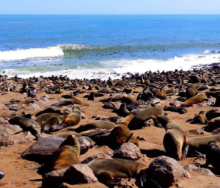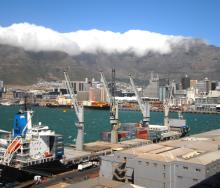The National Employers’ Association of South Africa (Neasa) has called on the International Trade and Administration Commission of South Africa (Itac) to scrap all protectionist duties on long steel products, with immediate effect.
Itac implemented a 9% safeguard duty on long steel products in June 2024 and an additional 52% anti-dumping duty on structural steel, a subdivision of long steel, in November last year.
This call follows the notification from ArcelorMittal South Africa (Amsa) that it will close two steel manufacturing sites and a rail production plant, affecting some 3 500 jobs.
The purpose of protectionist anti-dumping duties is to protect local manufacturers against unfair competition from importers, says Neasa chief executive Gerhard Papenfus.
“Although Amsa is not the only local manufacturer of long steel products, it is the only entity that applied to Itac for the implementation of protectionist duties,” he adds.
Since Amsa will no longer be a competitor in the market, the duties will no longer serve their intended purpose, Papenfus says.
“If retained, they will now simply be a massive windfall for government and a financial drag on the steel manufacturing sector, in particular the downstream.
“The steel manufacturing sector has been uncompetitive for a long time and is in dire need of any assistance available to it, including access to more affordable imported raw material.”
Papenfus believes there is no logical or reasonable justification for Itac to retain the duties, “unless government views the ‘stuffing of its collective pockets’ as more important than the wellbeing of a pivotal sector of the South African economy”.
The Department of Trade, Industry and Competition (the dtic) has expressed its concern following Amsa’s announcement.
“In fulfilment of its mandate to work with the private sector in growing the local economy, the dtic remains committed to working with Amsa to find a workable and lasting solution,” dtic minister Parks Tau said.
During the course of 2024, Amsa reached out to various government departments and state-owned entities with requests for different concessions for its business.
In response to these requests, Tau set up a technical working group comprising the relevant stakeholders, including the dtic and Amsa, the departments of electricity and energy and transport, as well as Eskom, Transnet and private sector stakeholders.
This working group held regular engagements up until and well into December 2024. This work has been noted in the statement released by Amsa.
“It has always been, and continues to be, the intention of government to continue these engagements until a workable resolution to the problems faced by Amsa and the steel industry is reached,” said Tau.
“The steel industry is critical in the reconstruction and recovery plan for the South African economy, particularly, the manufacturing, mining, construction, engineering and transportation sectors, which are at the centre of the industrialisation, localisation and beneficiation programmes of government.
“While the immediate task will be to address structural issues affecting Amsa’s long steel business, the broader focus should also be on addressing productivity improvements and supply chain efficiencies, investments in low-carbon technologies, competitiveness and regaining the market share.
“It is also important that public and private sector entities and companies commit themselves to procure locally manufactured steel products in their projects; Undoubtedly, such a commitment will contribute positively to aggregate demand, job creation and economic growth in South Africa.”













